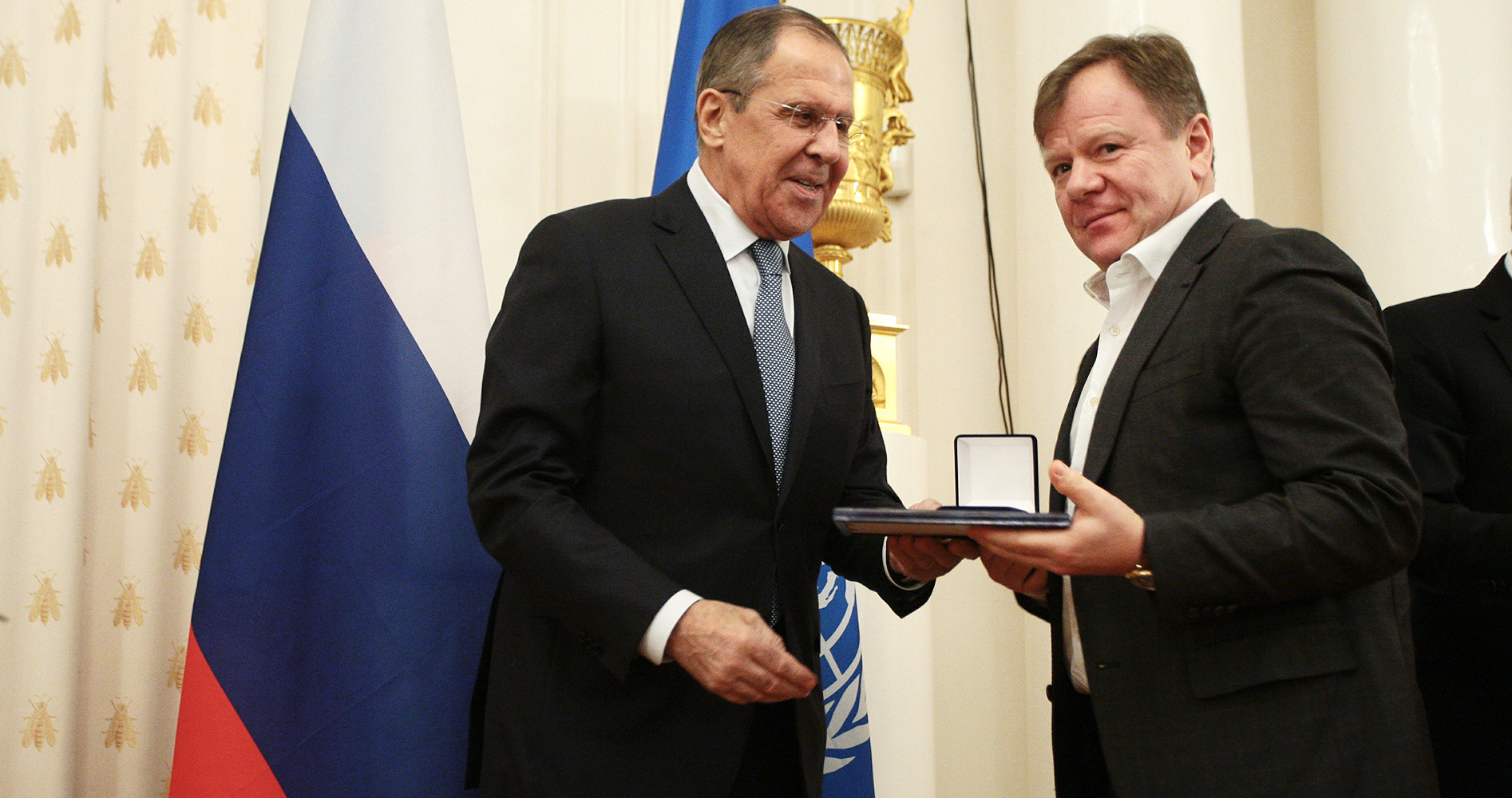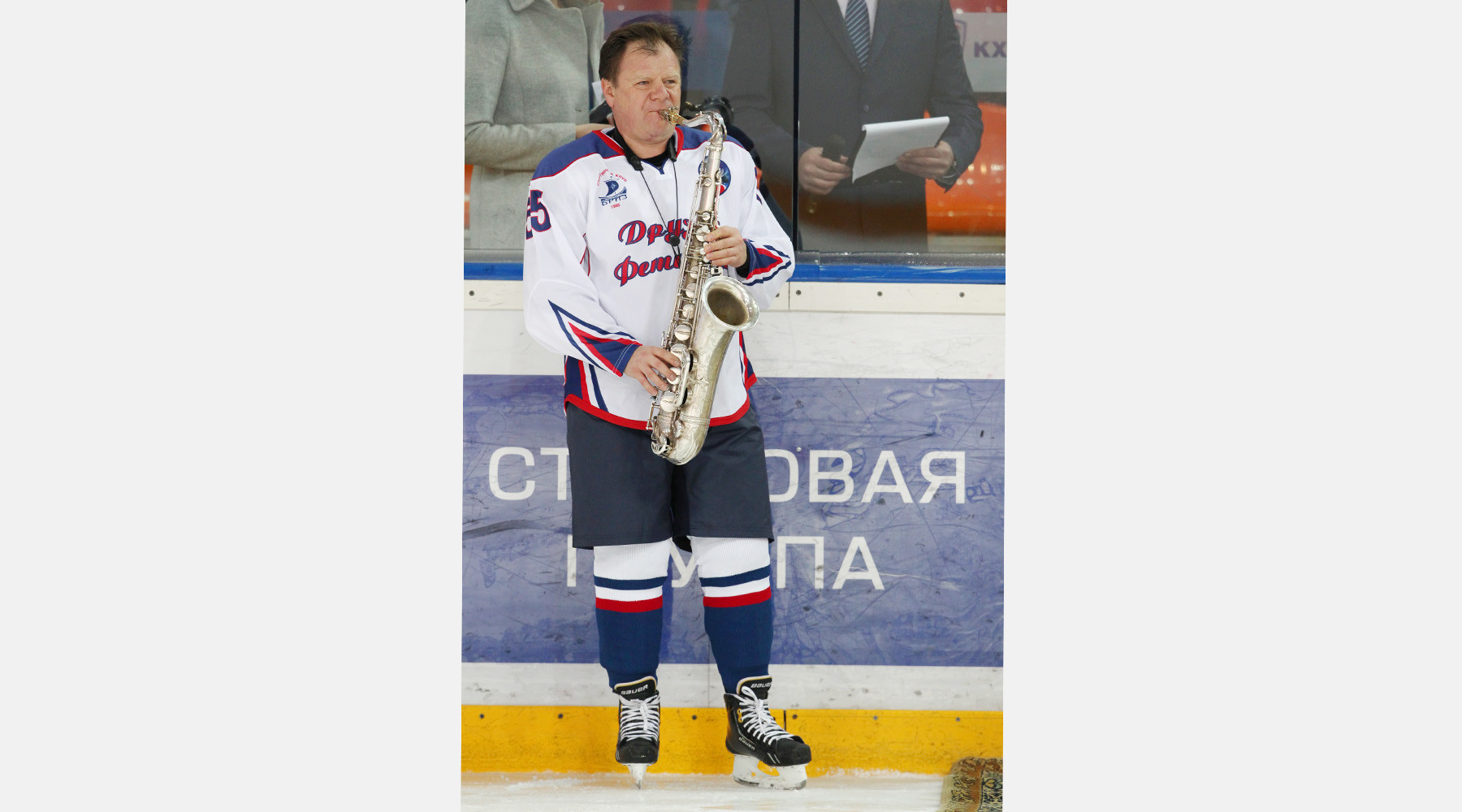- Igor, first let me ask: when did you start to get involved in jazz and music in general? At what point did you decide to make it your vocation?
- I became interested in music in early childhood. I liked the song "Marina, Marina, Marina ..." (sings. - RT ), although it was not jazz. My parents hid this record from me, a two-year-old boy, but I always found it. And when I listened, I jumped and danced.
My dad was an amateur drummer and one of those who first performed the Soviet hit, who later entered Edita Piekha’s repertoire called “Our Neighbor”. This is a song about a man who plays the saxophone and the trumpet. That's how it all started: my dad was a musician, I saw his performances on stage, and they made a very strong impression on me. Dad loved jazz and even went to Benny Goodman's concert in Leningrad in 1962. To get to him, he had to stand in line for three days. Dad told me about jazz, about the amazing sound of the clarinet, about Benny Goodman, about the saxophone ... Then the music captivated me. And captivates still.
- You are among the best contemporary musicians from the world of jazz, but in the view of most people, Moscow or St. Petersburg are not associated with this genre. What does Russia bring to it, how do these two cities enrich it and why is Russian jazz so unique?
- Russian (formerly Soviet) jazz has a rich history. I remember many years ago I collected posters with images of musicians who came to the Soviet Union in the twenties, such as saxophonist Sydney Bishe.
At some point, jazz became a symbol of freedom from American chains, uniting proletarians, including musicians, against the ideas of capitalism and the rest.
Then the situation changed, but the role of jazz in Russian culture is great, it was such from the very beginning. At that time, avant-gardists like Kandinsky and Malevich lived and worked. So the formation of jazz in the USSR fell on a period of progressive change. In 1923, Valentin Parnach organized the first jazz concert in the history of the Union. Even serious composers were interested in this genre: Shestakovich wrote “Jazz Suite”, Jazz was fascinated with Prokofiev ... Great jazz bands and orchestras appeared in the country. A jazz comedy featuring Leonid Utyosov appeared on the screens, which Stalin, by the way, took with great approval.

- globallookpress.com
- © MFA Russia Press Service / Global Look Press
Thus, jazz in the USSR became quite popular, many musicians who played it gained great fame. But it was only at first. Then the situation radically changed, and work related to jazz and professional jazz ensembles was banned. At the same time, jazz musicians have not gone away, but they could not work officially anymore.
Then changes happened again: Khrushchev came to power, the “thaw” began, and so on. And musicians, people with talent, could not part with jazz. They continued to play music, which was still considered a symbol of freedom.
As long as your jazz improvisation sounds, you cannot be stopped, and the flight path of your imagination is not known to anyone in advance. Through music, you can sing anything and convey any thoughts: funny, sarcastic, opposition - and no one can interfere. Therefore, the Soviet government and thought to ban jazz.
- Recently, you and Winton Marsalis received the prize of the Institute of Sustainable Dialogue for their contribution to the cause of peace in the world. How important is it for musicians and other artists to express through art about politics, culture and the flaws of their society?
- We are allowed to speak, and therefore we form a circle of like-minded people from among jazz music lovers for whom we play and with whom we associate. We are not only musicians, but also citizens of our country.
We want peace on the planet and that everyone live happily: the poor, the rich, and those in power. When we play, we want the audience to smile, open, and their hearts to feel the love and magic that music carries in them.
People listen to our music, which means that we can communicate with them and unite them. Sometimes it happens that the goal of unity is only one - to surrender to music, but looking into the hall, you notice that the audience join hands, and in their hands there is a noticeable tremor caused by the feeling of something bigger. Then you realize that dialogue is possible, and problems that seem so serious are in fact completely solvable.

- RIA News
- © Konstantin Chalabov
- If we talk about the climate that has been established in relations between Russia and the United States, what concerns you most?
- Yes, the climate is not very good ... Nevertheless, I do not think that our relations have reached the very bottom.
I love Russia because I was born there. There, my culture, my parents, friends, relatives ... Our achievements, our victories - they are all with me. But at the same time, I fell in love with America as a child: in its cinema, literature, and music. I love the United States, I love the people here ... I love a lot of things.
When I first arrived in the United States, I immediately noticed that people here are polite, smiling, willing to help, not afraid to talk to you. Russia is now becoming more and more similar to America in this respect, but in the Soviet Union, from where I came, it was a little different.
In general, I love Russia and America, and I would like our relations to be like during the Second World War. Help was then largely provided by the United States: food, metal ... and so on and so forth. We, in Russia, need to say that in the forties, in the most difficult wartime, we were on the same side. Do we have disagreements? Of course have. Can we overcome them? We have to do this - otherwise our planet will simply end. I do not want our children to grow up and hate any country, to think: "This is a bad country" or "This is a bad race." I want them to treat others with love. And with respect - of course, with respect.
- You played jazz for presidents and with presidents - in particular with Bill Clinton in the 1990s. Music is a bridge between cultures and people. How do we fix the bridge between America and Russia to get away from all these tensions?
- We need to give more awards like the one that we received. It is necessary to find reasons to talk about what is good in our relationship. Need to hold more sporting events. Remember the Ted Turner Goodwill Games? Let's conduct goodwill games. Let's hold more joint festivals, exhibitions ... Let's talk more.
Let us recall, for example, the conference of the Institute of Chatokva in the Soviet Union in 1986, where I met with Grover Washington. It is also necessary that there is more communication between ordinary people. No one said to me: “No, Igor, you can't be here!” With me, the Russian guys were - they were not stopped at the border. After all, there is no official ban on communication between people.

- RIA News
- © Evgeny Biyatov
There may be friction between governments, there may be sanctions, but nothing prevents ordinary people from communicating. So let's talk more, hold more events and try to understand each other better.
- What are you as a maestro with a magnificent career that has already taken shape, which so far does not even think of approaching sunset, would you advise young musicians? Those who are just starting?
- Keep doing your work, surrender to him without a trace, if you like. People who go to music and eventually become musicians lead to her passion.
I know many owners of impeccable hearing and outstanding musical talent who went into business - and not out of greater love for money than me, but because they have aroused a passion for entrepreneurship. Others also become engineers and anyone else. If you have a passion, then it must go to the end.
Listen and read everything that is known about the lives of great musicians, learn from their mistakes, because there are sources: for example, the autobiographical works of Miles Davis and John Coltrane or a book on the history of jazz called “Listen to what I will tell you ...”. In general, read more books and know that love of music can lead you to RT America.
Watch the full interview with Igor Butman at RTD.
